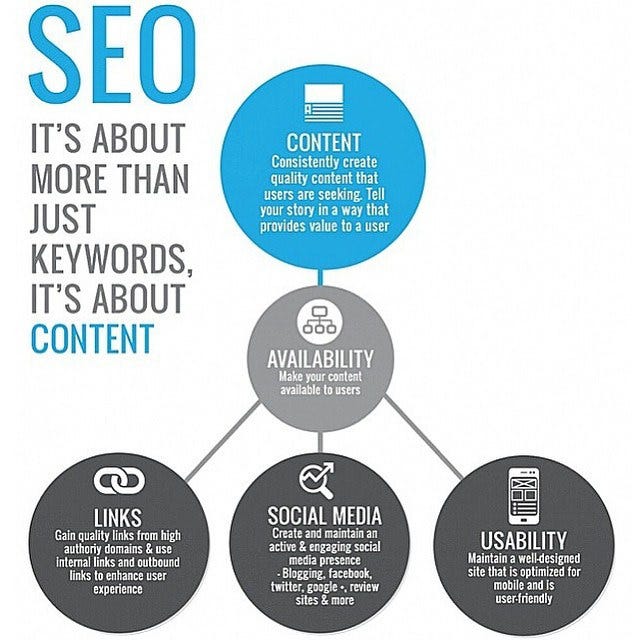The basic SEO principles you should always remember

There is a huge difference between rules and principles. While the first ones refer to specific situations and are meant to apply to circumstances defined by time and space, principles may be implemented without a strict casuistic observance: they work in different situations and adapt to ever-changing circumstances. It is possible to think in terms of principles when it comes to any activity. SEO, for example.
Search Engine Optimization (SEO) is a technique that helps content providers the positioning of their brands or keywords (which may be the name of individuals for marketing or online reputation management reasons). It basically refers to a set of measures to improve the positioning of a website in the ranking of different search engines, with the aim of being above competitors when users make a particular search. In short, the objective of SEO is to privilege an organization, brand or individual in the first pages of search engines like Google, to give them greater visibility. An attention war.
So, what principles are useful for developing different and new search engine optimization strategies?
Strategic simplicity
It is much more effective to place some few keywords (but after analyzing their position carefully) on your website than filling out your texts with repetitive information. It does not work with Google, for example. Write a title that contains your keywords and repeat them only once in your text. You don’t need more than that, really.
Avoid those long titles that try to say it all. Be simple, but strategic. The same applies to the unnecessary amounts of text (especially if it is quite repetitive) images and links. Remember that your texts should be read by individuals, not by algorithms.
Naturalness
Continuing with the previous point, if you focus more on improving the user experience (and you think about users individually), your content will seem more natural and less forced. Several users have the impression that some websites are not written for them, but for Google… and Google doesn’t really improve your SEO, but users, thousands of users. Do not forget that.
A practical example is link building. The idea is that your website is so good, that other websites include links that take users to your site; so, don’t buy them ever. Really. Buying links to your site is will surely make Google and other engines punish you severely. If this is detected by any search engine, it will negatively affect the positioning of your page, and then you would have lost a lot of time, money and energy completely unnecessarily.
This principle also applies to the semantics of your texts: Again, write for human beings who are seeking information. Don’t write for machines. Take care of the quality of your texts and write correctly. That’s more useful than any black hat technique.
Related: How to start writing the perfect article for Search Engine Optimization, by ReputationDefender
Respect the rules
Although you won’t go to prison for being a black hatter will be counterproductive in the long run. Each search engine has its own rules: respect them. Breaking the rules is a constant source of unnecessary problems: you will not just spend a lot of valuable time in evading the controls (which are updated and become more complex every day), but in case you are busted, you will lose much more than you invested (and it’s not just about money.) Be aware of what is allowed, what is expressly forbidden and what legal loopholes may exist (but remember that loopholes will stop being so at some point).
Let your good deeds protect you. You will live more calmly.
Adaptability
“Be like water,” said Bruce Lee. How easily has your website adapted to new technologies? Remember that today’s users read more on their mobiles or tablets than on desktop computers. Things will certainly change in the future (Holograms? Virtual reality?), therefore, it is important that your content can be seen, shared, quoted and enjoyed from any device, without difficulties. Remember that most search engines penalize websites that can’t be visited from smartphones, either because the interface is incompatible, or because it takes ages to load (and the truth to be told: nobody has so much patience today.)
The key of adaptability will allow you to “surf on the waves of change.” Do not stay behind. Be creative.

Update, update, update
Check your content: how often do you update your information? Do you talk about issues, trends and problems from the current year? Unless your website is about history, users demand you fresh information. So set a goal: update every week, at least twice. Remember that the competition for the attention of users is the Wild West.
Connectivity
Remember that search engines not only privilege the permanent updating of websites, but also how connected they are with others. Do your best to have other websites include links that take users to your site (and, of course, include links from related websites on your site, especially if they have good positions on the search engine.) It’s best to build networks, not only for the user’s experience, but for your positioning.
Recommended: The beginner’s guide to SEO
